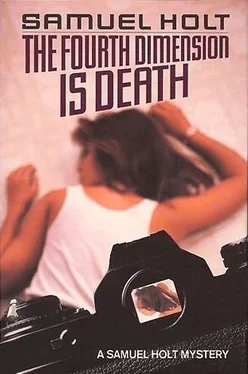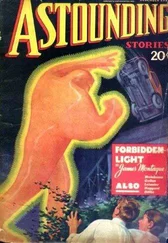“The old story?” I asked. “Going with the major agency after the small agent works to get their career off the ground?”
“Not exactly,” she said, and smiled at me, adding, “Though it’s sweet of you to have such faith in that old story.”
“It does happen a lot,” I said.
Her smile turned crooked. “Tell me about it. It’s happened to me once or twice. But that isn’t the Kay Henry story.”
“What is?”
“Rita Colby,” she said. “That’s the whole story, beginning to end.”
“Tell,” I said, suddenly aware that at probably half the tables around us similar conversations were taking place; people putting their heads closer to dish professional acquaintances. But my purpose, of course, was more serious than simple gossip. On the other hand, gossip is fun, too.
“Well, of course,” Blair said, “Henry isn’t even his first name. God knows what it is.”
“Blair,” I said gently, “God knows what my name is. Or Brett’s.”
“All right,” she said, nodding. “I was being catty. And thank you for not questioning my monicker.”
“Mm? Blair Knox,” I said, turning the syllables over, considering them. “Sounds perfectly ordinary,” I decided.
She laughed and said, “Now, you’re being catty. All right, Kay Henry. Years ago he worked for CRA, did you know them?”
“Sure. Career Representative Associates. They’re the ones who merged with my old agent, to become CNA. Career-Novak-Allied.”
Brett said, sounding grumpy, “All these damn initials. Everybody sounds like government agencies.”
I said, “You mean, like the CIA and the FBI?”
“Any of them.”
“Well,” I told him, “CIA is the Culinary Institute of America, and FBI is the Food & Beverage Institute.”
He stared at me. “You’re putting me on.”
“Nope. Those are absolutely real.” Turning back to Blair, I said, “Kay Henry worked for CRA. In the mailroom?”
“No,” she said, “unfortunately not. He was a young agent here in their New York office, and he did some work for Rita Colby. She’d been pretty well known for a while, but she was just about breaking into the big time right then. What happens, the reason a lot of people change agents when they hit big, they get the feeling the agent still thinks of them as the old smalltimer. And maybe sometimes it’s the truth. Or maybe the brand new star has trouble throwing her weight around as much as she’d like, when she’s still surrounded by people who knew her when.”
Brett said, “Before her head got too big for her hat.”
“Pretty much so,” Blair agreed.
I said, “But she’s still with Henry.”
“No, wait a minute,” she said. “Rita Colby and Kay Henry were both with CRA, but he was just a lowly assistant. He was new and young, and he didn’t act like he knew Rita Colby when, because he’d just got there himself. And what Colby wanted was a lap dog agent, somebody who knew how to do the job, but who would take orders and not give her a bad time.”
“Ah,” I said. I know of such agent/client relationships, and I’ve always thought they were mistakes. No matter how good you are, you’re still better off to have an objective eye around, to keep you from going off the deep end. An agent whose job is to agree with the client can maybe make the deals right, but he can’t necessarily make the right deals. I said, “So what you mean is, Rita Colby set Henry up in the agency business, with her as his first client.”
“Sure,” she said. “And he can have all the other clients he wants, but as soon as one of them starts to become important—”
“A rival,” Brett said.
“Out goes that client,” Blair finished. “Male or female, it doesn’t matter.”
“But the rest can stay,” I said, remembering that cosy clubhouse atmosphere in Kay Henry’s waiting room. Some of those people hadn’t been there to meet with Henry or his assistants at all, but merely to hang out together. For some of them, it would be a substitute for the acting career they’d originally planned. They’d earn their livings “temporarily”, waiting tables or driving cabs, and instead of the career, they’d have that false tribe over at Henry’s; comforting, accepting, encouraging, understanding. And since the agency did have Rita Colby, that one major star occasionally seen in their midst, it meant the lightning bolt could still strike.
Then there was the ambiguity of the relationship between Rita Colby and Dale Wormley; he’d escorted her to this or that function a few times, and she’d insisted on his being given the part in Four Square . Julie Kaplan was convinced there’d been nothing sexual between them, but was she necessarily right?
Was Kay Henry pimping for Rita Colby, out of the bullpen of that waiting room?
I said, “Blair, what do you know about Rita Colby’s private life?”
“What private life? Sex life, you mean?”
“I guess so, yes.”
“Nothing, thank God,” she said, with a delicate shudder.
Brett said, “She isn’t married. Not now, anyway.”
“No?”
“Seems to me,” he said, being a little awkward about it in front of Blair, “I’ve heard here and there she likes to have a handsome younger guy around sometimes.”
“Kay Henry clients?” I asked.
Blair’s eyes sparkled with the love of gossip. “Sam? Do you think so?”
“Well, as a matter of fact,” I told her, “there’s a possibility I’ll be finding out for myself, some time later today.”
The fellow who’d been in acting class with Dale Wormley, and who Julie had called on my behalf, was named Tom Lacroix, and we’d arranged to meet in his apartment in the East Village at three, so I walked down there after lunch with Brett and Blair. My background and persona — though not the Ed Dante name — were different for Tom Lacroix than for Kay Henry. This time, I was a freelance writer working on an article for Vanity Fair about success and failure in the arts, and the idea was that I wanted to use Dale Wormley’s life and death — the fact that he had become best-known for imitating someone more successful than himself — to illustrate some of the themes of my article. I would also, of course, be mentioning Tom Lacroix himself in the piece, as someone still teetering between those extremes of victory and defeat; but the main subject would be Wormley.
Lacroix lived on East 10th Street off 3rd Avenue, an area that hasn’t been gentrified exactly, but is moderately quiet and relatively safe, with rows of four and five story brick townhouses long ago converted to apartments and more recently converted to hot water and heat. His place was in one of these, on the fourth floor rear of a walkup. I identified myself on the intercom outside the front door, he buzzed me in, and I climbed to find him grinning down at me from the top of the stairs, saying, “I hope you’re in good shape.”
“Reasonably so,” I told him. “But I’m just as glad you’re not on six.”
“Lordy, Lordy, me, too,” he said, and I heard Texas — southwest, anyway — twanging in his voice. He was a rangy, athletic-looking fellow in his mid-twenties, with an amiable, unlined, not very memorable face. He wore jeans and a flannel shirt, and looked like the sort of actor they use to dress the bar set in beer commercials. When I reached the top of the stairs, he gave me a firm bony handshake and ushered me into an apartment approximately the size of a watch pocket. “If you sit there and I sit here,” he said, “our knees won’t bump.”
“Thanks.”
I sat where he suggested, and, true to his appearance, he asked if I’d like a beer. I said I would. “Lone Star,” he offered, “or Dos Equis?”
Читать дальше












